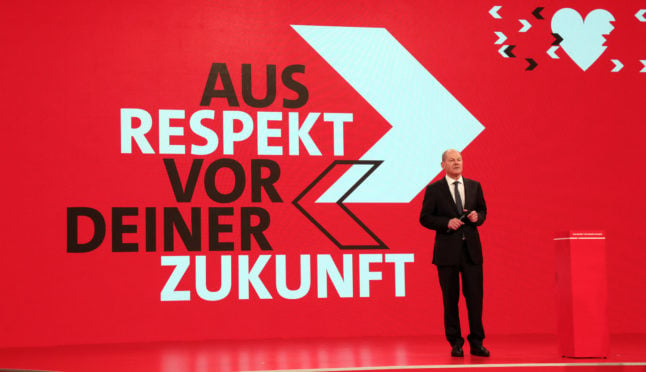“It’s about the future of our country… the path Germany must follow in the 21st Century,” Scholz told a socially-distanced SPD party congress after winning 96.2 percent support of 600 delegates to be their candidate in the September 26th election.
The poll marks a crossroads in German politics as Chancellor Angela Markel bows out after 16 years in power.
New Christian Democratic (CDU) leader Armin Laschet will look to replace Merkel, who currently runs a CDU-led coalition in which the SPD serves as junior partner.
But both traditional heavyweights are playing catch-up as latest polls
place the Green Party in the lead with 26 percent of voting intentions to 23-25 for the CDU as the SPD trails on 14-16.
Having won his party’s nomination last year, 62-year-old former Hamburg mayor Scholz said he was in the process of laying a “foundation for change” and urged the party to “get to work.”
Portraying himself as a “committed European” he said climate change had to be a top priority as it comprised “this century’s essential human mission”.
READ ALSO: Popular SPD politician Olaf Scholz announces run for German chancellor
“We have already lost too much time… We want to achieve carbon neutrality by 2045 by the latest,” he added. That target has been brought forward from an initial coalition pledge of 2045.
The SPD also wants electricity to be produced exclusively via renewable sources by 2040.
A futher party pledge as the party looks to wrest back the polling momentum from the Greens, who have propelled environmental issues centre stage, is to get 30 million electric vehicles on the road by the end of this decade.



 Please whitelist us to continue reading.
Please whitelist us to continue reading.
Member comments